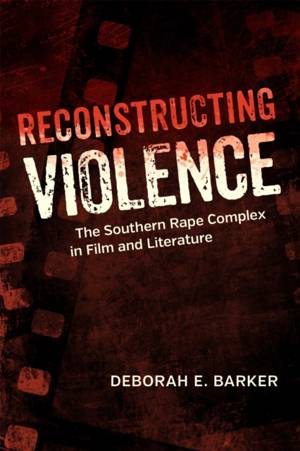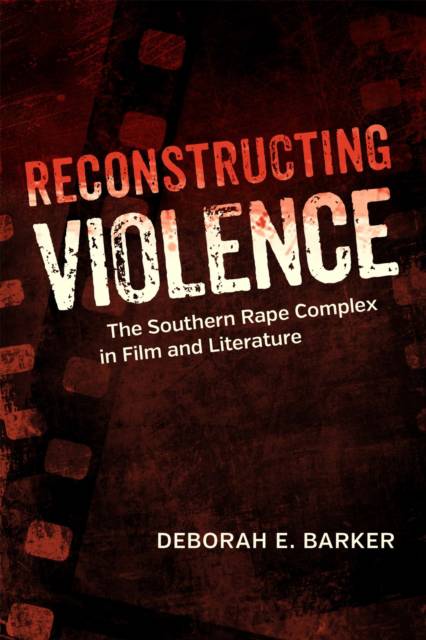
- Afhalen na 1 uur in een winkel met voorraad
- Gratis thuislevering in België vanaf € 30
- Ruim aanbod met 7 miljoen producten
- Afhalen na 1 uur in een winkel met voorraad
- Gratis thuislevering in België vanaf € 30
- Ruim aanbod met 7 miljoen producten
Omschrijving
In this bold study of cinematic depictions of violence in the south, Deborah E. Barker explores the ongoing legacy of the "southern rape complex" in American film. Taking as her starting point D. W. Griffith's infamous The Birth of a Nation, Barker demonstrates how the tropes and imagery of the southern rape complex continue to assert themselves across a multitude of genres, time periods, and stylistic modes.
Drawing from Gilles Deleuze's work on cinema, Barker examines plot, dialogue, and camera technique as she considers several films: The Story of Temple Drake (1933), Sanctuary (1958), Touch of Evil (1958), To Kill a Mockingbird (1962), and Cape Fear (1962). Placing this body of analysis in the context of the historical periods when these films appeared and the literary sources on which they are based, Barker reveals the protean power of cinematic racialized violence amid the shifting cultural and political landscapes of the South and the nation as a whole.
By focusing on familiar literary and cinematic texts -- each produced or set during moments of national crisis such as the Great Depression or the civil rights movement -- Barker's Reconstructing Violence offers fresh insights into the anxiety that has underpinned sexual and racial violence in cinematic representations of the South.
Specificaties
Betrokkenen
- Auteur(s):
- Uitgeverij:
Inhoud
- Aantal bladzijden:
- 282
- Taal:
- Engels
- Reeks:
Eigenschappen
- Productcode (EAN):
- 9780807160626
- Verschijningsdatum:
- 11/11/2015
- Uitvoering:
- Hardcover
- Formaat:
- Genaaid
- Afmetingen:
- 158 mm x 232 mm
- Gewicht:
- 576 g

Alleen bij Standaard Boekhandel
Beoordelingen
We publiceren alleen reviews die voldoen aan de voorwaarden voor reviews. Bekijk onze voorwaarden voor reviews.









